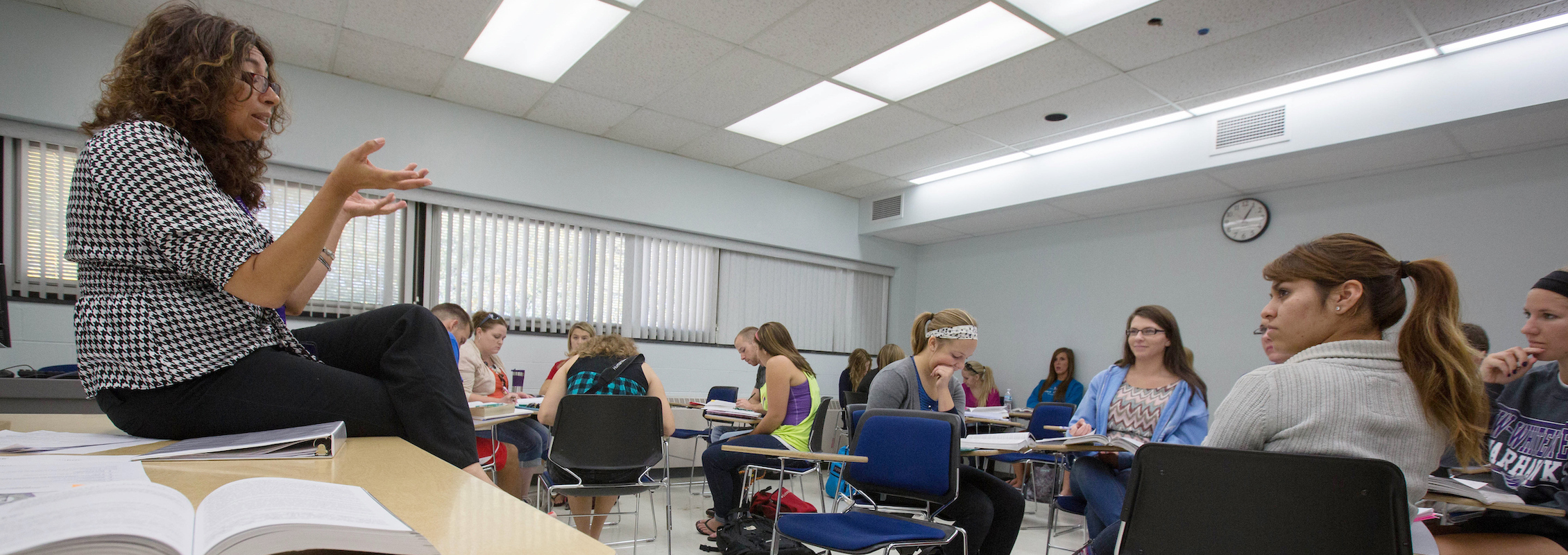Design Spotlight

Name: Nicole Weber
Position: Director of Learning Technology
Department: Learning Technology Center (LTC)
Unit: ICIT
What do you do?
Every day is a new adventure! I work with campus administrators, department chairs, and instructors to understand teaching challenges and work with LTC staff to explore them--particularly technological and pedagogical solutions that enhance student learning and success.
Where did you come from?
I’ve been teaching face-to-face, blended, and online courses since 2009 in a variety of topic areas (e.g., community problems, research methods, social media for educators, educational psychology)--first at the University of Wisconsin-Milwaukee (UW-M) and now here at UW-Whitewater (UW-W). Since I started teaching I have been fascinated on how best to reach and engage students, as well as best practices for using emerging technologies. I joined the UW-M LTC in 2012 where I led online and blended faculty development programming and came to UW-W as the Director of Learning Technology in 2015.
What are you seeing across campus?
So many instructors are doing some really amazing things inside and outside the classroom to reach and teach their students! They also want to connect over new teaching ideas. That was actually one of the reasons we have been working with LEARN and the Office of Academic Assessment to start this site.
In the LTC we are seeing more inquiries about how to:
- Design courses using blended (online and face-to-face components) pedagogy to meet the needs surfacing from COVID-19
- Structure new online programs
- Leverage technology to meet student needs in larger classes
- Develop deep, relevant, and personalized learning activities online
- Teach quality online courses
What are the top three things instructors can do to make for a great learning experience for their students?
Just three? I have way more than that! If I had to narrow it down to three, I would say:
- As you’re developing your course, think about it as a narrative that tells the story of your course objectives. Structure it into digestible chunks where you provide a frame (e.g., why it’s important and how it connects to prior or future topics) and different types of content (e.g., audio, videos, text) that help students complete an activity that shows evidence of them meeting one of your course outcomes.
- Make Canvas work for you and your students. Students want to come into the course site and know what they have to do. Make sure your navigation and directions are clear. Prepare your grades area before opening the course site for students so they know how they will be graded. Many students heavily rely (for better or worse) on the Canvas calendar function that compiles assignment due dates for all their Canvas course sites, so be sure to select due dates for assignments you create. The Modules area of Canvas is the first thing that students see when entering your course. Try to make it as user-friendly as possible--many students appreciate modules and items in those modules in chronological order (i.e., Week 1) rather than by type (e.g., readings, assignments, etc.).
- The first time I taught an online course, one student wrote “I think she is a robot” on my course evaluation. Don’t be a robot. Since that evaluation, I have dedicated myself to not being a robot by increasing my communication and presence with my students. Some things that have worked to turn this around for me include recording frequent (e.g., weekly or module) video introductions to topics, posting announcements a few times a week, assigning activities where I get to know students and I can share my knowledge with them, giving prompt and thoughtful feedback on email inquiries and assignments, and leveraging technology tools like Webex Teams to ease communication barriers.
What can campus leaders do to support instructors?
Support their instructors in attending LTC and LEARN instructional development events, as well as taking advantage of our resources (e.g., online/blended course design consultations) and instructional technologies. The LTC also can work with departments to create unique workshops for their instructors based on their needs!


